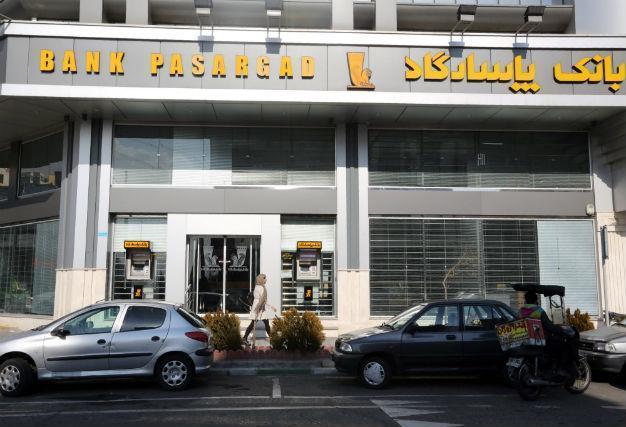Iran’s lender ‘looking presence in Germany, Spain, Turkey and China’
TEHRAN - Reuters

AFP photo
Bank Pasargad, Iran’s second-largest listed bank, is looking to raise capital and expand overseas now that the country is free of the shackles of sanctions, a senior official told Reuters.
After years of being frozen out of the global financial system, Iran’s banking sector will be crucial to the country’s efforts to win business from foreign firms and attract investment to upgrade its infrastructure, as dealmakers and conduits for the cash flows.
Bank Pasargad aims to raise money from both Iranian and foreign investors and to expand at home - including in investment banking and asset management - as well as overseas, according to board member Mostafa Beheshtiroui.
It is exploring the possibility of establishing a presence in countries including Germany, Spain, Turkey and China, which could be in the form of wholly owned branches, joint ventures with local partners or outright acquisitions, he said in a telephone interview. It eventually plans to seek a listing on a foreign stock exchange.
The lender outlined its plans after a nuclear deal between world powers and Iran led to the removal of the curbs on Tehran’s banks, bringing out of isolation an industry big enough to wield some clout on a global level.
The Iranian banking sector consists of eight state-owned and 19 privately owned banks which held a combined $582 billion in assets at the end of 2014, according to central bank data. By comparison, South Africa’s banking sector has over $400 billion in assets, while Turkey’s has about $800 billion.
Iran itself is the second-largest economy in the Middle East and North Africa region after Saudi Arabia, according to the World Bank, and with around 78 million people has the region’s second-largest population of the region after Egypt.
The country faced some form of economic sanctions throughout the period between Bank Pasargad’s launch in 2005 and this month, though Pasargad says it was never on a Western list of individually sanctioned banks.
The bank grew domestically and is now the 11th largest listed firm by market value on Tehran’s stock exchange, and the second-biggest listed lender after Bank Mellat.
It has about $19 billion of assets, according to Beheshtiroui - though he said that, without the deprecation of the rial against the dollar in recent years due to sanctions, the figure could have been as high as $70 billion.
Since the lifting of sanctions this month, it has doubled its number of correspondent bank relationships, mostly by adding mid-sized European banks, Beheshtiroui added. Correspondent banks act as agents for a lender to conduct business abroad.
“We have around 50 already - we already had documents exchanged prior to implementation,” said Beheshtiroui, referring to the day this month when the United Nations atomic agency confirmed Tehran had met its commitments under the nuclear deal.
Hurdles remain
Hurdles remain, however, such as securing approvals from clearing banks that would help process transactions denominated in hard currencies, Beheshtiroui said.
“Resuming correspondent relations is one thing, and resuming business is another,” he said.
Many of the largest Western banks are expected to steer clear of doing business in Iran for some time because of concern about being caught up in U.S. sanctions that remain in place, said Beheshtiroui, echoing comments made by the head of listed Tehran peer Middle East Bank to Reuters last week.
The ongoing American sanctions prevent U.S. nationals, banks and insurers from trading with Iran and also prohibit any trades with Iran in U.S. dollars from being processed via the U.S. financial system.
Before sanctions were tightened in recent years, Bank Pasargad dealt with several of Europe’s biggest banks but none have now resumed their links, Beheshtiroui said.
Previously, foreign expansion plans met with resistance from regulators wary of being caught in the sanctions, such as in Turkey, where in 2012 the bank unsuccessfully applied for a license.
“Before, nobody was even willing to sign NDAs (non-disclosure agreements) - this is happening only after implementation day,” said Beheshtiroui, adding that two such agreements had now been signed with parties he declined to name.
The bank plans to double the capital contributed by shareholders to 100.1 trillion rials ($2.8 billion at the free-market exchange rate) in the next three years, from 50.4 trillion rials currently, he added, but did not specify how the money would be raised. Its last capital increase was in August last year, when it added 12 trillion rials.
